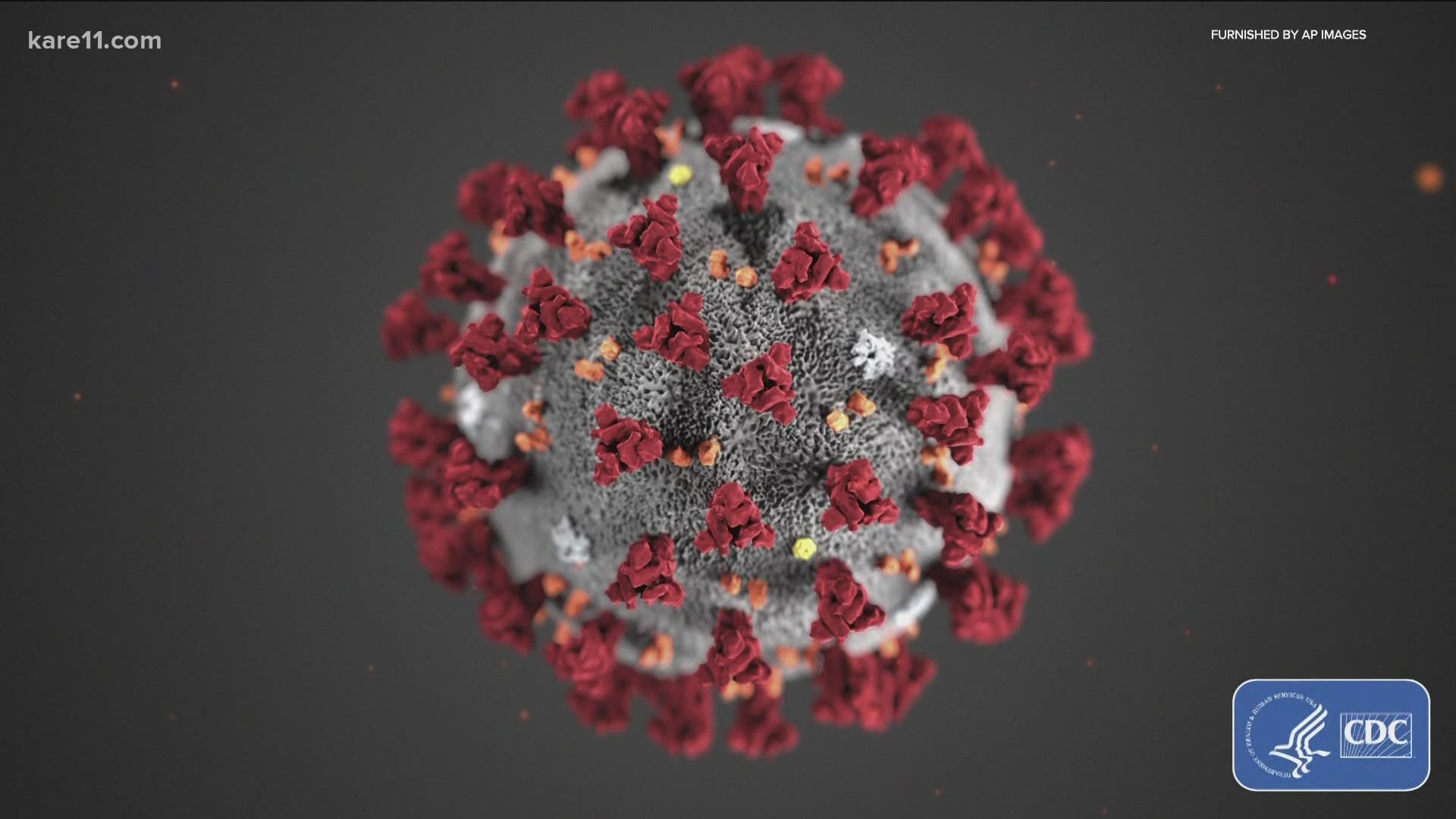MINNEAPOLIS, Minnesota — Researchers have discovered seven new coronavirus variants in the United States with similar mutations.
The study was posted online Sunday as a preprint and has yet to be peer-reviewed.
It started with Jeremy Kamil, an associate professor of microbiology and immunology at Louisiana State University Health Sciences Center Shreveport.
Kamil had been sequencing samples from COVID-19 tests and uploaded a bunch of data to the international data sharing initiative, GISAID.
Soon he was hearing from other scientists about the same mutation. According to Kamil, the variants all appear to have originated in the U.S.
"When we see the same mutation appearing over and over, what that tells us is that there might be a reason why the virus keeps kind of selecting for this particular mutation," said Emma Hodcroft, a molecular epidemiologist at the University of Bern in Switzerland and one of the lead co-authors on the study.
As first reported by The New York Times, researchers found multiple lineages of SARS-CoV-2 Spike protein variants affecting amino acid position 677.
As noted in the study, the spike protein plays critical roles in host cell entry.
"There's no reason that people should be concerned about these variants. We don't have any evidence that they're more transmissible and we certainly don't have any evidence that, for example, they could affect vaccines or they're more clinically dangerous in any way," Hodcroft said.
But as we hear about more contagious variants, like the one first found in the United Kingdom, researchers said it is important to keep sequencing and sharing this data with other scientists around the world.
Kamil said a lack of federal funding has put the United States behind other countries when it comes to sequencing.
"It's really important to continue sequencing and surveillance and also just have people all around the world, not just the United States, rapidly sharing their sequence results onto the global database GISAID because without that we don't know about these variants from Brazil or South Africa happening. In fact, if you stop data sharing, you stop those sequencing activities as well because there's no attention to feed it and stimulate it. The U.S. has kind of been behind in this and we need to catch up quick," Kamil said.
The study found seven lineages from less than 1% of test samples. Meaning there could be other variants we don't know about.
"I always like to say, 'If you walk down to your kitchen in the middle of the night to get a glass of water and turn on the light and you saw a cockroach run away, there's probably a lot more.' Sequencing is like turning the light on," Kamil said.
Researchers also took a different approach to naming these new variants. The World Health Organization is calling for new names for COVID variants to avoid stigmas attached to countries where these variants are first detected. To avoid that, Hodcroft said they named the new variants after American birds.
While researchers said the public should not be alarmed by the new variants, these studies help point to what may be important to the virus.
"That could unlock all kinds of information about how the virus is changing and if there's anything we can do. Can we use this information to impact our own changes in making sure that the virus isn't transmitting so readily? So we're continuing to do a lot of work on this," Hodcroft said. "The next step will be going to the lab and actually testing whether we see if these mutations change the virus. But until we have some evidence that that's the case, I think it's really important that people don't panic and we will of course keep everyone updated with our research as it progresses."

